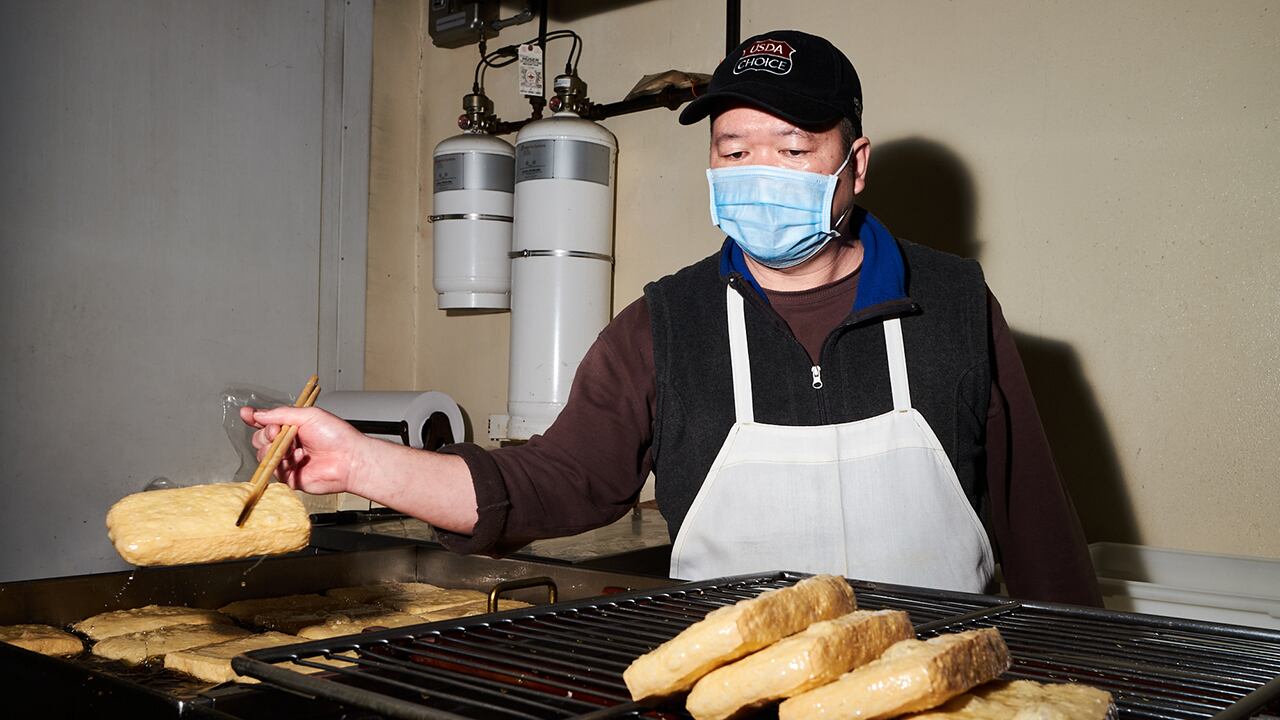Six days a week, Jason Ogata wakes up at 3 am and heads to the factory floor of Ota Tofu, America's oldest operating tofu maker.
The early call time is the result of the manufacturing process. The tofu is handmade in the Japanese tradition—hand-stirred, hand-pressed, hand-cut—and uses nigari, a salt derived from seawater. The process is time consuming and laborious. But the finished product is too good to mess with.
"I like to refer to it like bread," says Ogata, 34. "If you have bread made the exact same day, it's much better than something mass produced."
Ota Tofu opened in 1911 in Northwest Portland, later moving to the eastside—its black-and-white sign can now be seen behind the rowdy array of Christmas lights enveloping the Slammer Tavern. At the beginning of the 20th century, the Japanese population in America grew tenfold. Tofu was not yet a dining staple in the states, but the Ota family (originally spelled Ohta) saw a chance to feed the growing community a staple from back home. Word of mouth within the Asian American community and Portland's early embrace of the health food craze has kept the company in business for 110 years.
Ogata took over as owner two years ago and says he feels the pressure to preserve the company's legacy. But he also has big plans for it, too.
In the past year, Ogata has focused on promoting Ota's social media presence and brand awareness, landing features on national outlets like Eater and National Public Radio. He also created a website—something the business did not have before.
Overall, Ogata wants to share his love for the tofu he grew up eating as a kid. So far, he's been successful: When the pandemic hit, many restaurants that once carried Ota Tofu closed, but retail sales in upscale grocery stores like New Seasons have started to soar.
"I want to increase the exposure of tofu among the general public. I want people to incorporate it into weekly meals," he says. "I think we can even grow to other geographical cities and expand our market. We just have to survive COVID first."
See all 24 Reasons to Still Love Portland here!

